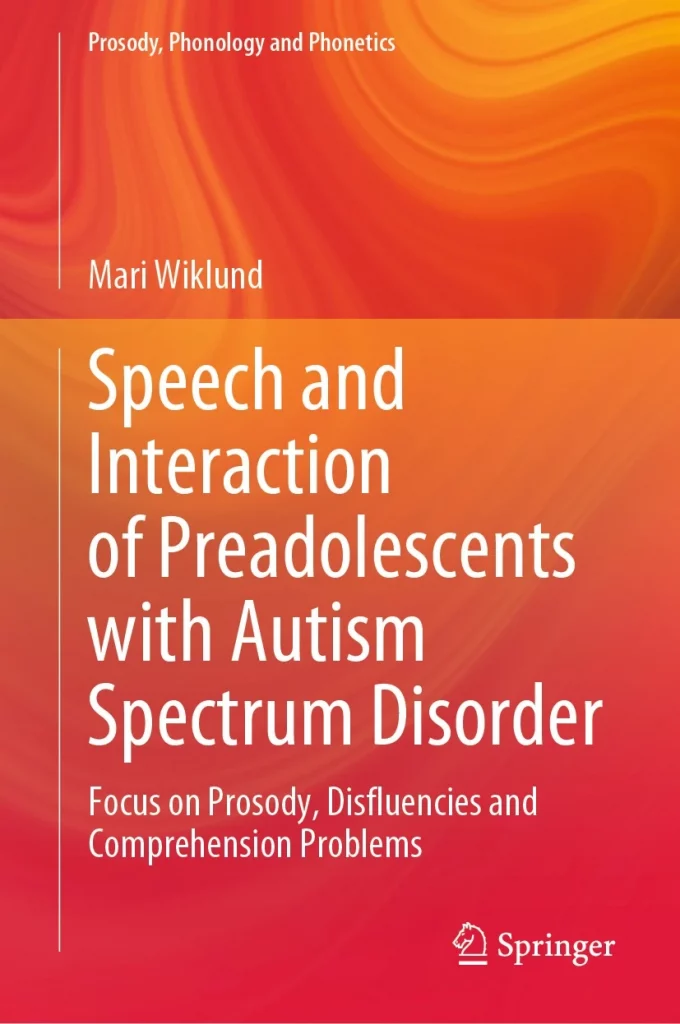
My scientific monograph entitled Speech and Interaction of Preadolescents with Autism Spectrum Disorder: Focus on Prosody, Disfluencies and Comprehension Problems was published by Springer in January 2023.
Reference:
Wiklund, Mari (2023): Speech and Interaction of Preadolescents with Autism Spectrum Disorder: Focus on Prosody, Disfluencies and Comprehension problems. Springer. (158 p.) DOI: https://doi.org/10.1007/978-981-19-8117-3
Abstract:
The book focuses on the interaction of persons with autism spectrum disorder (ASD). ASD is a neurobiological developmental disorder, characterized by problems with social interaction, over-sensitivity to sensory stimuli and restricted interest (APA 2013). Problems with social interaction being a core feature of ASD, there is a scientific and a societal need for a book focusing on this topic. The book approaches the interaction of persons with ASD from a new angle. Firstly, where most studies on ASD are based on data coming from experimental settings, this book is based on naturally occurring data coming from group therapy sessions where 11–13-year-old Finnish- and French-speaking boys with ASD talk with each other and with their therapists. Secondly, the book treats a variety of themes that have so far been studied much less than, for example, the pragmatic problems of persons with ASD. These themes include the following aspects: speech prosody (characteristic features, perception of atypicality by neurotypical listeners), disfluencies of speech (comparison with neurotypical controls), comprehension problems (role of prosody, role of disfluencies, other causes), gaze behavior (eye contact avoidance strategies, using gaze as a source of feedback) as well as therapists’ response strategies and teaching orientations. The book is intended for researchers working in the field of autism, professionals working with persons with ASD as well as for families of persons with ASD.